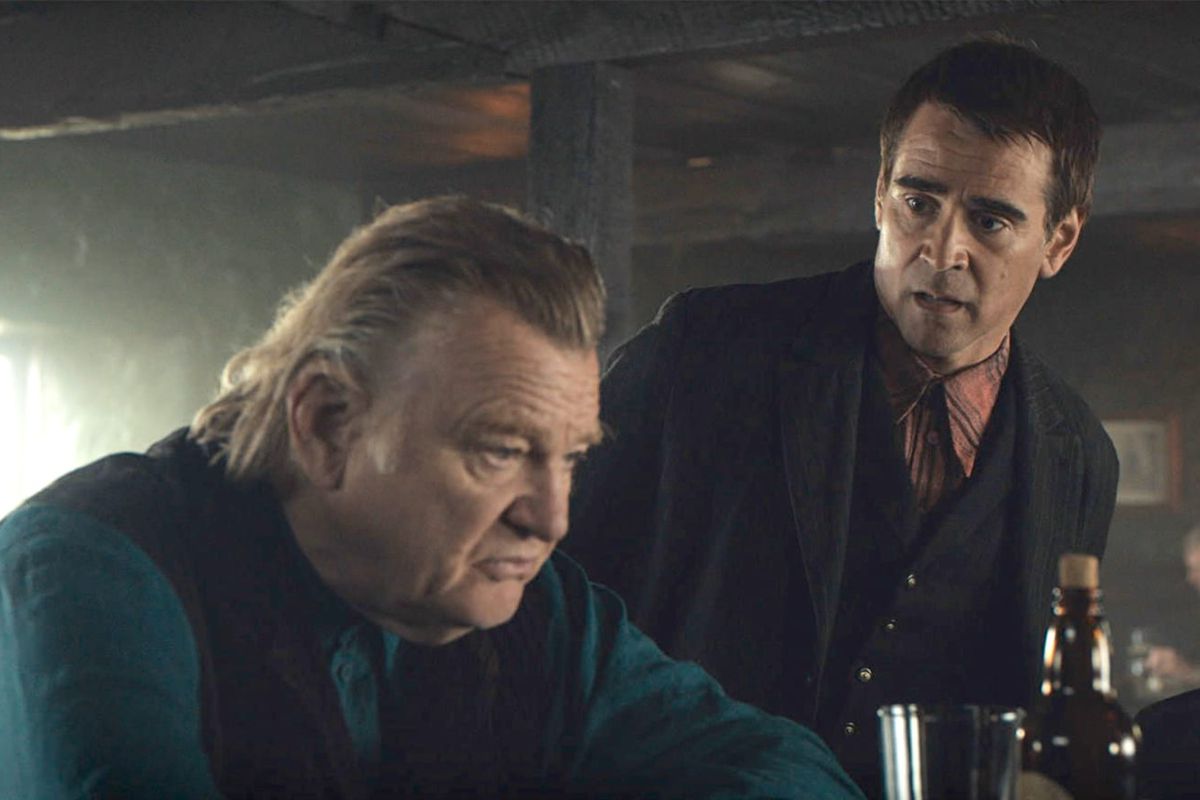We have all been told it a million times. You find your seat on the plane and like clockwork the flight attendant instructs you to secure your own oxygen mask before helping others. When taken literally, this makes sense. You can’t help others if you yourself are unable to breathe. But what happens when this instruction becomes a metaphor for how we treat others? What happens when we combine that with the growing sense of individualism that an unprecedented amount of access to social media and encouragement to prioritise ourselves has given us? What happens when this has allowed people to adopt a sense that they can do anything they want as long as it’s “the right thing for them”? Luckily, and maybe even unknowingly, Martin McDonagh’s 2022 film The Banshees of Inisherin captures this exact dilemma and the fallout.
An allegory for the Irish Civil War, The Banshees of Inisherin tells the tale of Pádraic whose best friend decides one day he no longer wants to speak or see Pádraic. Superficially, it may seem difficult to relate to two middle aged men on a fictional remote Irish island who have pet donkeys and cut their own fingers off. However, when Colm suddenly ices Pádraic out for seemingly no reason, it’s hard not to relate. Most people have been cut off by someone at some point. A friend, a partner (or potential partner), even a family member. Oftentimes, the only reason given is that it was “the right thing to do for themselves” or “something they needed to do”. Of course, taking care of one’s own state of mind is important, but this begs the questions: Where is the line? How much do we owe each other and how much do we owe ourselves?
I believe that social media has allowed us to become too self-focused and it therefore justifies treating others unkindly and unfairly. Influencers who have no background or education in mental health preach “self-care”. Trends like the “main character” emerge and teach us that anyone can and should be the centre of their personal universe. These ideas of individualism combined with “therapy speak” have allowed us to become so focused on ourselves that we seem to have lost empathy for those around us. We are so able to compartmentalise our needs that we lose sight of the needs of our loved ones. We have been given the tools to become self-centred, and to not feel bad about it.
We can link this to the social phenomena of ‘ghosting’ which Psychology Today defines as “abruptly ending communication with someone without explanation”. It seems to be a unanimous cultural consensus that ghosting is an asshole move. In Banshees, Colm ghosts Pádraic, or at least he mightily attempts to. Pádraic, in an unwavering allegorical nod to the Irish Civil War, wonders what they are even fighting about and is unwilling to accept being cut off by his best friend. He demands answers, which Colm initially refuses to answer. When he does finally explain, he says that he finds Pádraic dull and that he wants to focus on his music sans distractions and sans Pádraic. Pádraic takes this so hard that he, who had once prided himself on his “niceness”, becomes cold and hardened. He becomes someone who, like Colm, doesn’t seem to care about who he hurts as long he can justify it to himself.
Banshees may not answer all the questions this phenomena begs but it does reflect the impact of social media when it comes to understanding how hyper-individualism supports it. The fictional island of Inisherin has characteristics that mirror that of social media today. Idyllic at first but revealed to be more complicated than they seem, both have a sense of being a ‘bubble’; reality that borders on real life but never quite crosses over. Inisherin’s tiny population has the same magnifying effect on the lives of its dwellers as social media does on its influencers. There is an extreme intensity in interpersonal relationships. Personal details, relationships, and affairs are scrutinised and privacy is an illusion. This allows for the people of both Inisherin and those on social media to feel that they are the center of their own self-contained world —a small island community — creating an intense sense of individualism and self-importance. Social media can feel like the entire world, creating terms like ‘chronically online’. It’s hard to hate Colm however, as he genuinely appears to believe he is doing the right thing for himself. And is he wrong? Probably not. Where he is wrong though, is that he does this at the expense of Pádraic’s wellbeing. Colm hurts Pádraic because he lacks the empathy that a sense of perspective offers.
How does The Banshees of Inisherin resolve this then? The answer is it doesn’t, not really. Pádraic burns Colm’s house down after Colm accidentally kills Pádraic’s donkey. In a conversation veiled with metaphors of the Irish Civil War, Pádraic says he thinks there are some things that cannot be moved on from. And in a way, he is right. We have created, in today’s world, psychological structures, and social pathologies which social media culture engenders, that in my opinion, cannot be moved on from. Unless we are collectively able to recognise and reject the individualistic mindset that social media not only allows but encourages, we will continue to hurt each other and be able to justify it. Taking care of oneself is important but equally important is taking care of the welfare of those around us. Self care doesn’t need to exist at the expense of other people. We can secure both our own oxygen masks and those of our loved ones.








